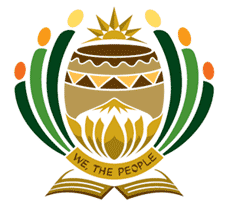Parliament is the cornerstone of our democracy, playing a pivotal role in shaping national policies and laws that impact the lives of every South African citizen. Here’s a glimpse into who we are and what we do:
Our Responsibilities
- Legislation: Parliament is responsible for drafting, debating, and enacting laws aimed at improving the quality of life for all citizens.
- Policy Discussion: Members of Parliament engage in robust discussions and debates on government policies and various political issues, ensuring that diverse perspectives are considered.
- Representation: MPs serve as the voice of the people, consulting with constituents and advocating for their interests and concerns within Parliament.
- Constituency Support: MPs provide assistance and support to individuals and communities within their constituencies, addressing specific needs and challenges.
- Budget Oversight: Parliament scrutinizes and approves government budgets, ensuring transparency and accountability in the allocation and expenditure of public funds.
- Government Accountability: Parliament holds the executive branch accountable for fulfilling its promises and implementing policies effectively.
- Financial Oversight: Parliament monitors the prudent use of public funds, ensuring that taxpayer money is spent wisely and in accordance with legal and ethical standards.
Explore our Strategic Plan to learn more about our goals and priorities in serving the nation.
Constitution
For South Africa, the journey from apartheid to democracy was marked by the crafting of a visionary document – the Constitution. Here’s an insight into its significance and the pivotal role it plays:
Crafting the Constitution
- Historic Transition: Following the historic democratic elections of 1994, the Constitutional Assembly, comprising representatives from various sectors, convened to draft a new Constitution.
- Public Consultation: After two years of extensive public consultation and debate, the Constitution of the Republic of South Africa, 1996, was adopted, setting the stage for a new era of governance.
Pillars of Democracy
- Supreme Law: Our Constitution is hailed globally for its progressive ideals and serves as the supreme law of the land, guiding all government actions and ensuring accountability.
- Separation of Powers: Enshrined in the Constitution is the principle of the separation of powers, delineating the roles of the executive, legislature, and judiciary.
Key Components
- Executive Branch: Led by the President, the executive develops policies, implements legislation, and is accountable to Parliament for its actions.
- Legislative Function: Parliament, comprising the National Assembly and National Council of Provinces, holds the power to pass laws, oversee government functions, and provide a platform for public discourse.
- Judiciary: The judiciary, including the Constitutional Court, ensures the interpretation and application of the law, safeguarding the rights and freedoms of all citizens.
Rights and Responsibilities
- Bill of Rights: Central to our Constitution is the Bill of Rights, which guarantees fundamental rights and freedoms, ensuring equality, dignity, and socio-economic well-being for all.
- Protection of Rights: The state is mandated to respect, protect, promote, and fulfill these rights, addressing socio-economic disparities and ensuring access to essential services.
Independent Oversight
- Chapter 9 Institutions: A hallmark of our Constitution is the establishment of independent bodies, such as the Human Rights Commission and Public Protector, tasked with safeguarding democracy and holding government accountable.
- Accountability: While these institutions operate independently, they are accountable to Parliament, reporting on their activities and upholding democratic principles.
The Constitution stands as a beacon of hope, embodying the aspirations of a nation committed to democracy, justice, and human rights.
What does the Parliament Emblem Symbolise?

The Sun – Our South Africa
The sun, a powerful symbol in our emblem, represents healing, progress, and unity. It signifies our collective journey towards a brighter future, transcending the divisions of the past.
The Protea Leaves – Our People
The protea leaves embody the resilience and diversity of our people. As active participants in our democracy, we elect representatives to Parliament, where our voices are heard and our concerns addressed.
The Drum – Our Parliament
The drum serves as a rallying call for our Parliament, summoning the National Assembly and National Council of Provinces to deliberate on national and provincial matters. It symbolizes the vibrant exchange of ideas and the democratic process at work.
The Book – Our Constitution
At the heart of our emblem lies the Constitution, our guiding light towards democracy, social justice, and human rights. As the supreme law of the land, it ensures government by the people and upholds the principles of our nation.
The National Assembly Mace
In a nod to our rich history and cultural heritage, the National Assembly Mace embodies the diverse tapestry of South Africa. Carefully crafted elements represent our traditions, languages, and identity, reflecting the essence of our nation.
The Black Rod – National Council of Provinces (NCOP)
The Black Rod symbolizes the authority of the Chairperson of the National Council of Provinces. Carried with solemnity during ceremonial processions, its presence signifies the formal commencement of parliamentary proceedings, ensuring order and respect within the House.
The Parliament Emblem serves as a visual representation of our values, aspirations, and commitment to democracy. It stands as a testament to the strength and unity of our nation.